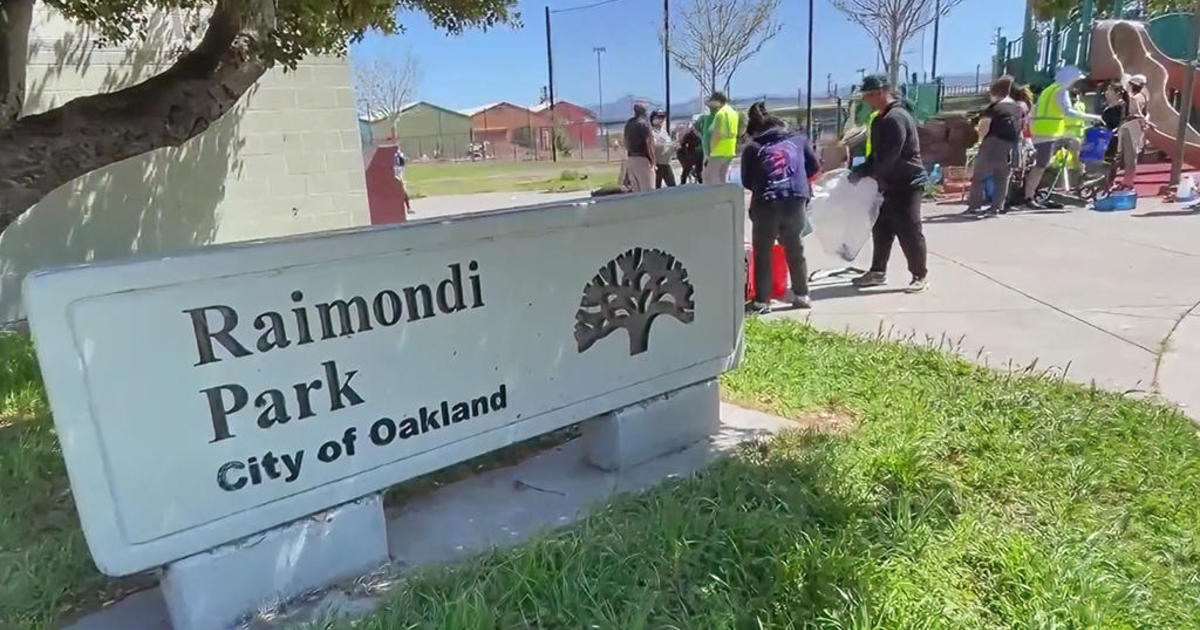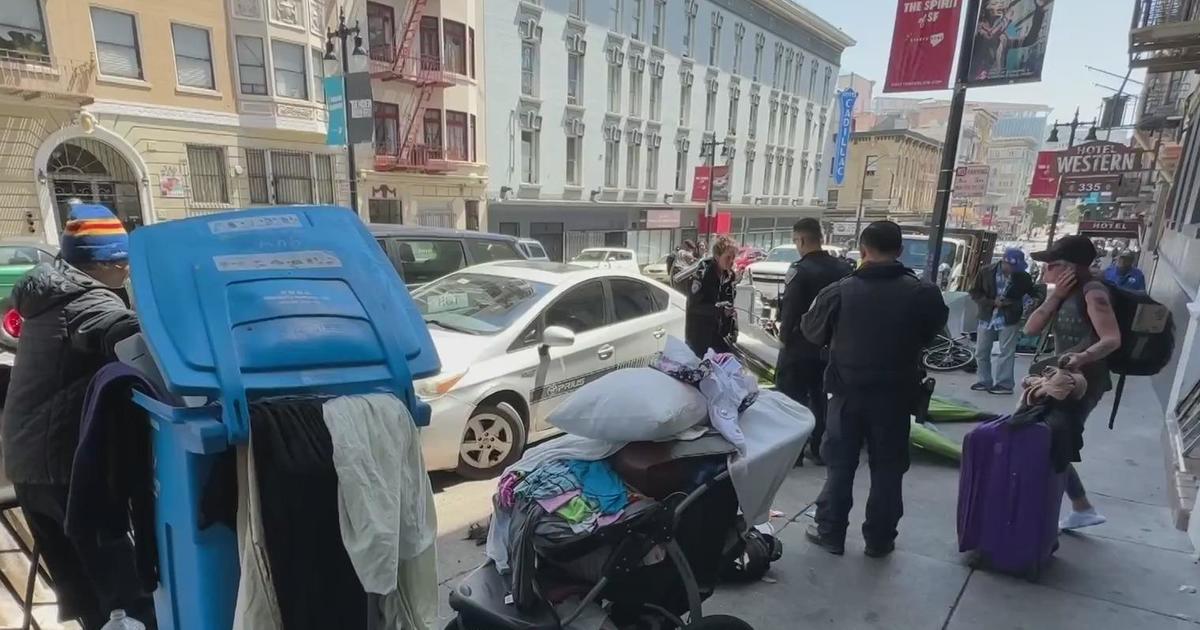California Drought: EBMUD Officials Talk Water Wasters and How Residents Can Save
OAKLAND (BCN) -- Will wasting water in 2021 become what going maskless in public was in 2020? Probably not. Which doesn't mean public displays won't bother some, especially those whose business is saving water.
"My big pet peeve is seeing runoff when people are watering their lawns/gardens," said Alice Towey, the manager of water conservation for the East Bay Municipal Utility District. "The sidewalk does not need to be irrigated, folks!"
"My biggest two water wasting activities I see regularly and are irritating: Watching as people turn their kitchen faucet on full blast -- it rarely needs to be turned on all the way unless filling up a pot, etc. -- and then stepping away from the sink to do something on the side for a moment while leaving the faucet running," said Whitney Ray, who specializes in water conservation programs and efficiency for EBMUD.
And the other?
"Outdoors, whenever I see giant sprinkler systems for large, irrigated areas running in the middle of a sunny and breezy day instead of running in evening or early a.m. hours when evaporation and wind drift are minimized," Ray said.
As conservationists for EBMUD and its 1.4 million customers, Towey and Ray are very busy during California's drought, but they took time for an online chat about water last week with Local News Matters.
California just experienced its driest rainy season since 1977. EBMUD declared a stage one drought in May, more than a month before summer started. Just a few weeks later, things already look worse.
"Sadly, we've seen that conditions have become much drier, and our runoff projections have decreased," Towey said. "Other water suppliers around the state have seen a similar trend, including the U.S. Bureau of Reclamation, who administers our contract for supplemental water during drought years through the Central Valley Project.
"As a result, USBR reduced our allocation of these supplies down to 25 percent, or 33,000 acre feet of water. We plan to start drafting this water in September, to supplement customer conservation efforts."
Should projections get even bleaker, the EBMUD board of directors could increase the level of voluntary rationing or change the voluntary part altogether.
"They may also consider going to mandatory rationing," Towey said. "At that point, some of our suggestions for saving water -- like not watering lawns more than three times a week, etc. -- become requirements. It's important that we all do everything we can to conserve now in case next year is also dry."
Which isn't something anyone will know anytime soon.
"Long term weather forecasting isn't very accurate," Towey said. "That said, while we never know when the dry year will hit, we know that it will. That's why our drought planning prepares for and assumes multiyear droughts, and that's why we're taking action this year. We want to save water now in case next year is also dry."
Ray said small behavior changes count when it comes to conservation. Wash full loads of clothes and dishes. Don't run the sink faucet unless necessary. Keep showers short. Replace inefficient fixtures.
Outdoors, don't irrigate more than three times a week and do so early or late in the day, when water doesn't evaporate as fast. Trees and shrubs rarely need more than water once a week. Don't hose down driveways and go to a car wash, as most use recycled water. Use a pool cover and put off planting until fall.
A great idea is to replace water-guzzling lawns with plants that aren't so demanding.
"Our lawn conversation rebate program remains popular," she said. "So far this year, we've helped customers replace over 80,000 square feet of lawn with drought tolerant plants. We continue to encourage our customers to replace their lawns with beautiful, water efficient gardens."
There won't be fewer people using water in California anytime soon, despite all the talk about people leaving California.
"Based on regional planning agency data and projected population growth, EBMUD is anticipating an increase in population within our service area over the coming decades," Ray said. "However, through water conservation, recycled water, and water loss control programs, we are aiming to maintain our demand as much as possible by increasing the impact and efficiency of these programs."
And about those people irrigating sidewalks ... will the water police to do something about them?
"In water shortage emergencies, we enact Section 28 of our regulations that prohibits certain activities that are wasteful of water," Towey said. "In severe droughts, we also have an excessive use penalty ordinance to discourage extremely high water use, which is based on metered consumption. Customers that exceed that amount of water get a monetary penalty."
"People can report water waste to us, and we'll investigate and follow-up," Towey said. "Most customers don't want to be wasteful, and when we get in touch with them, they'll moderate their water use."
EBMUD offers more water conservation tips and rebate opportunities on its website.
© Copyright 2021 CBS Broadcasting Inc. All Rights Reserved. This material may not be published, broadcast, rewritten, or redistributed. Bay City News Service contributed to this report.



